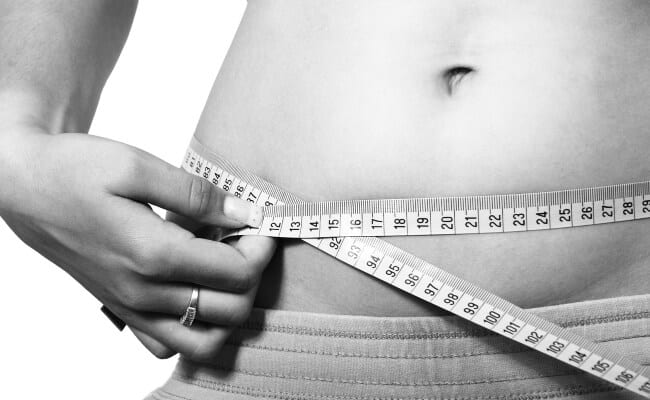One of the ways of thinking that sabotage our weight loss efforts is the desire to shake off the pounds in a lightning-fast manner.
By the time most people decide to go on another crash diet, they are so unhappy with themselves that they can’t bear the thought of waiting for months to achieve results. So naturally, they turn to diets that promise the quickest weight loss.
Of course, these crash diets NEVER work. And no, it’s not because people don’t have enough willpower to say no to sweets. It’s because all crash diets are built on the same ineffective foundation – strict calorie restriction, which essentially means starving yourself.
Besides actually hurting your weight loss efforts and driving you mad, strict dieting can also lead to all sorts of health problems.
In this article, I will share five reasons why crash diets don’t work. We’ll also take a quick look at some of the strategies that can work if weight loss is your goal.
Five Reasons Fad Diets Don’t Work
You’re Not Losing Fat but Water Weight

When you start a new diet, you usually get great results in the first couple of weeks. After all, you’re restricting your calories and cutting down on carbohydrate-rich foods like sweets, pastries, bread, and pasta.
The problem is, it’s not REAL weight you’re losing. Sure, the number on the scale is getting lower, but it won’t stay there once you start eating normally again.
Why?
Because most of the initial weight loss on a new diet comes from lost water and not body fat.
To put it simply, for every gram of glucose your body stores as energy (in the form of glycogen), it also stores 3-4 grams of water. When you keep your carb intake low for a certain period, your body digs into those stored energy reserves. By using up these glycogen stores, it also drops all the water it holds along with it. So, when you go back to eating normally, your carb intake increases, and so does the number on the scale because your body starts to store water again.
If you keep your calories low for too long, your body starts breaking down muscle to cover the energy deficit. It also wants to get rid of the bulk ASAP because muscle is metabolically very active and requires a lot of calories for maintenance. So, you do end up with a lower number on the scale but also with less muscle mass. Less muscle means less fat is burned over time, which only ends up hindering your weight loss progress.
Crash Diets Aren’t Sustainable in the Long Run
A lot of things happen in your body when you start restricting calories, but I want to talk about the effect dieting has on your mental well-being. Yes, losing weight is all about creating a deficit by eating fewer calories than your body burns or burning more calories than you take in. But if it were that simple, we’d all be stick skinny by now!
Restricting foods and calories has an enormous effect on our mental health, and this is why most diets fail. It’s not because you don’t have enough willpower and motivation, it’s because you don’t realize there are lots of psychological challenges that arise from dieting.

Have you ever noticed that as soon as you decide to go on a diet, you start craving all of your favorite foods? And the longer you restrict yourself, the stronger these cravings get? It’s not “sugar addiction” or “being weak” that creates these thoughts, it’s just your brain reacting to food restriction in the only way possible – by making you think about food all the time!
This is why maintaining a healthier lifestyle is the better option. Go for cleaner meal plans and pair them with exercise, eat lots of fiber, opt for vegan sweets, etc.
Most people also don’t realize that emotions play a huge role in what, how or why we eat. You may be able to avoid emotional eating for a month or two, but your reasons for overeating will ALWAYS come back to haunt you.
Your Bad Eating Habits Are Only Temporarily Docked
Fad diets are nothing but a quick fix to a long-term problem. If you have issues with overeating, irregular feeding patterns, or compulsive consumption of unhealthy foods, then these diets will not help you fix things.
Sure, you may feel a sense of control over yourself during the diet, but the moment you achieve your goals, you’ll find yourself falling back into old habits.
Why?
Because you’re not actually working on changing your habits. You’re just following rules that someone else has put together. You won’t be avoiding eating cookies, cakes, and chocolate ice cream for dinner because it’s unhealthy, you’re avoiding it because someone else is telling you to. And unfortunately, the moment you don’t have to follow these rules anymore, you’ll start eating like you used to.
It Is a Form of Cruelty Against Yourself

Fad diets fail to work because they are not fun.
Don’t you just feel like you’re punishing yourself? You are low on energy; your moods are all over the place; you’re constantly starving and thinking about all the forbidden foods. Not to mention the feelings of guilt and disappointment when you fail to follow the diet to a T.
This creates negative attitudes towards dieting and a healthy lifestyle which will only hold you back on your journey toward health and weight loss.
They Can Wreak Havoc on Your Health
Besides heavily restricting calories, most crash diets also cut out entire food groups, such as dairy or carbohydrates. Not only does this approach create a negative association with certain foods, but it can also put you at risk of serious nutrient deficiencies that can really hurt your health.
For example, research has found that high-protein diets can lead to dehydration and, eventually, kidney stones (1). Yo-yo dieting is associated with a higher risk for cardiovascular and heart diseases (2). Long-term dieting can damage our bones, which, in turn, puts us at a higher risk of injuries as we age (3).
What Works for Weight Loss?
It’s debatable whether diets and intentional weight loss “work” at all, and I’ve given up dieting myself, but there are behavioral changes that can (but may not) result in weight loss for some people. Here are two of them.
Ditch the diet mentality
Ironically, the first step in (potentially) losing weight is ditching the diet mentality. Restricting foods, counting calories, and overexercising almost always lead to weight loss, but they also lead to lots of issues with food, like bingeing and overeating. Instead, focus on weight-neutral ways to improve your health. This article by BuzzFeed makes a great case against diets.
Identify unhealthy habits you want to change

Instead of going on yet another diet that is touted as the hot trend of the month, start making permanent lifestyle changes by focusing on unhealthy habits one by one.
For example, if you’re used to having midnight snacks, consider substituting chips for carrot sticks or a handful of healthy nuts and seeds. If you’re usually skipping breakfast, try to include healthy smoothies or freshly pressed juices in your morning routine.
Although changing habits isn’t easy, you’ll be surprised to see how it can affect your life. Start by reading this excellent article about creating new habits by FitnessReloaded.
Bottom line
There is nothing wrong with wanting to lose weight, although most people will find their chances of keeping the weight off long-term are pretty low. If you’re still intent on dropping pounds, know that fad diets are not the way to go. Instead, focus on ditching the dieting mindset and changing your habits for the better.

